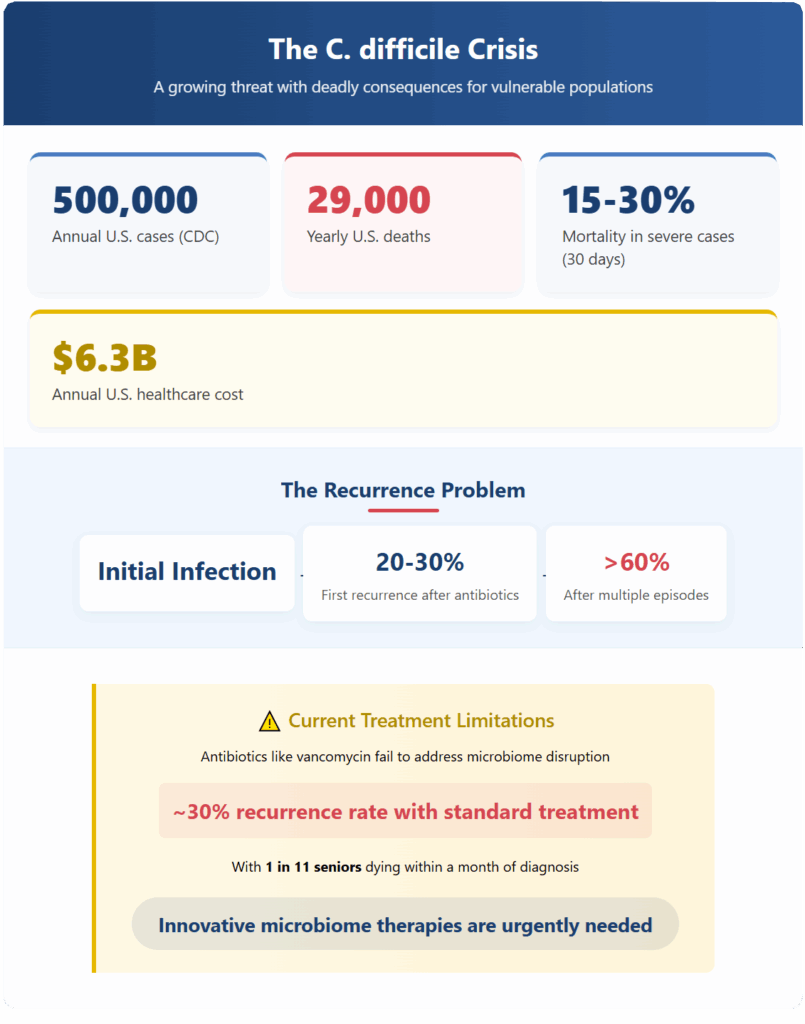ImmuniMed
Our goal - Mastery of
C. Difficile
Microbiome Immunotherapy to cure, prevent recurrance and stop C. Diff before it starts.


C. Difficile infections are a growing crisis
C. difficile Infection (CDI): A Deadly & Costly Crisis
Widespread & Deadly: C. difficile infections (CDI) cause nearly 500,000 illnesses and about 29,000 deaths each year in the U.S. alone (CDC).
High Mortality: In severe cases, especially among the elderly or those with weakened immune systems, death rates reach 15-30% within 30 days of diagnosis.
Massive Cost: CDI burdens the U.S. healthcare system with $6.3 billion in annual costs due to long hospital stays, treatments, and repeat infections.
The Vicious Cycle of Recurrence:
Relapse is Common: 20-30% of patients see the infection return after initial antibiotic treatment.
Risk Increases: After multiple episodes, recurrence rates jump to over 60%.
Hypervirulent Strains: Aggressive strains (like BI/NAP1/027) cause 20-30% of outbreaks, leading to higher death rates and treatment resistance.
Current Treatments Fall Short:
High Recurrence Risk: Standard antibiotics (e.g., vancomycin) still carry a ~30% chance of the infection coming back.
Root Cause Not Addressed: These treatments often fail to repair the damaged gut microbiome – a key factor in CDI.
Urgent Need: With 1 in 11 seniors dying of CDI within a month of diagnosis, innovative therapies that restore gut health are critically needed to stop this epidemic.